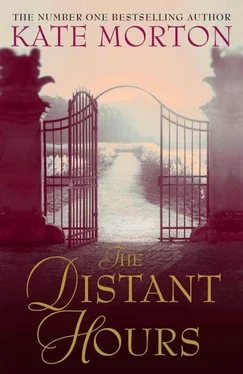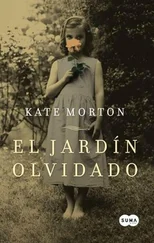‘But I love to play with them,’ Juniper had said. ‘They’re my friends. And they tell me such interesting things.’
‘I know, darling, and that’s wonderful. All I ask is that you remember that you’re not one of them. You are a little girl with skin, and blood beneath it, and bones that could break, and two big sisters who very much want to see you reach adulthood!’
‘And a daddy.’
‘Of course. And a daddy.’
‘But not a mother.’
‘No.’
‘But a puppy.’
‘Emerson, yes.’
‘And a patch on my knee.’
Saffy had laughed then, and given her a hug that smelled like talcum and jasmine and ink, and set her back down on the kitchen tiles. And Juniper had been very careful not to make eye contact with the figment at the window that was beckoning her outside to play.
Juniper didn’t know where the visitors came from. All she knew was that her earliest memories were of figures in the streams of light around her crib. They’d been there before she’d understood that others couldn’t see them. She had been called fey and mad, wicked and gifted; she’d driven away countless nannies who wouldn’t abide imaginary friends. ‘They’re not imaginary,’ Juniper had explained, over and over again, with as reasonable a tone as she could muster; but it seemed there were no English nannies prepared to accept this assertion as truth. One by one they’d packed their bags and demanded an audience with Daddy; from her hiding spot in the castle’s veins, the little nook by the gap in the stones, Juniper had cloaked herself in a whole new set of descriptions: ‘She’s impertinent…’, ‘She’s obstinate…’, and even, once, ‘Possessed!’
Everybody had a theory about the visitors. Dr Finley believed them to be ‘fibres of longing and curiosity’, projected from her own mind and linked in some way to her faulty heart; Dr Heinstein argued they were symptoms of psychosis and had provided a raft of pills he promised would end them; Daddy said they were the voices of her ancestors and that she had been chosen specially to hear them; Saffy insisted she was perfect as she was, and Percy didn’t mind much either way. She said that everyone was different and why on earth must things be categorized, people labelled normal or otherwise?
Anyway. Juniper had not really sat on the swing seat because it was the safest thing to do. She’d sat there because it afforded her the best view of the figment in the pool. She was curious and he was beautiful. The smoothness of his skin, the rise and fall of muscles on his bare chest as he breathed, his arms. If she had conjured him herself, then she had done a bloody brilliant job; he was exotic and lovely and she wanted to observe for as long as it took him to turn back into dappled light and leaves before her eyes.
Only that wasn’t what had happened. As she sat with her head resting against the swing’s rope, he’d opened his eyes, met hers, and begun to speak.
This, of itself, was not unprecedented; the visitors had spoken to Juniper before, many times, but this was the first time they’d taken the shape of a young man. A young man with very little clothing on his body.
She’d answered him, but shortly. Truthfully, she’d been irritated; she hadn’t wanted him to speak; she’d wanted him just to close his eyes again, to float upon the shimmering surface, so she could play voyeur. So she could watch the dance of sunlight on his limbs, his long, long limbs, his quite beautiful face, and concentrate on the queer sensation, like a plucked string humming, way down deep within her belly.
She hadn’t known many men before. There was Daddy, of course – but he hardly counted; her godfather, Stephen; a few ancient gardeners who’d worked on the estate over the years; and Davies, who’d babied the Daimler.
But this was different.
Juniper had tried ignoring him, hopeful that he might get the idea and stop trying to make conversation, but he’d persisted. He’d told her his name, Thomas Cavill. They didn’t usually have names. Not normal ones.
She’d dived into the pool herself, and he had made a hasty exit. She’d noticed then that there were clothes on the sun bed; his clothes, which was very strange indeed.
And then, the most peculiar thing of all. Meredith had come – released at last from Saffy’s sewing room – and she and the man had begun to converse.
Juniper, watching them from the water, had almost drowned in shock, for one thing was certain, her visitors could not be seen by others.
Juniper had lived at Milderhurst Castle all her life. She had been born, like her father and her sisters before her, in a room on the second floor. She knew the castle and its woods as one might be expected to know the only world one had met. She was safe and loved and indulged. She read and she wrote and she played and she dreamed. Nothing was expected of her other than to be precisely as and who she was. Sometimes, more so.
‘You, my little one, are a creature of the castle,’ Daddy had told her often. ‘We are the same, you and I.’ And for a long time Juniper had been perfectly content with this description.
Lately, though, in ways she couldn’t properly explain, things had begun to change. She woke at night sometimes with an inexplicable tugging in her soul; a desire, like hunger, but for what she couldn’t say. Dissatisfaction, longing, a deep and yawning absence, but no idea of how to fill it. No idea of what it was she missed. She’d walked and she’d run; she’d written with speed and fury. Words, sounds, had pressed against her skull, demanding release, and to put them on paper was a relief; she didn’t agonize, she didn’t ponder, she never reread; it was enough just to free the words so that the voices in her head were stilled.
Then one day an urge had taken her to the village. She didn’t drive often, but she’d steered the big old Daimler into the High Street. As if in a dream, a character in someone else’s story, she’d parked it and gone inside the hall; a woman had spoken at her but by then Juniper had already seen Meredith.
Later, Saffy would ask her how she’d chosen, and Juniper would say: ‘I didn’t choose.’
‘I don’t like to disagree, lamb, but I’m quite sure it was you who brought her home.’
‘Yes, of course, but I didn’t choose . I just knew.’
Juniper had never had a friend before. Other people, Daddy’s pompous friends, visitors to the castle, just seemed to take up more air than they should. They squashed one with their blustering and their posturing and their constant talking. But Meredith was different. She was funny and she saw things her own way. She was a bookish person who’d never been exposed to books; she was gifted with astute powers of observation, but her thoughts and feelings weren’t filtered through those that she’d read, those that had been written before. She had a unique way of seeing the world and a manner of expressing herself that caught Juniper unawares and made her laugh and think and feel things anew.
Best of all, though, Meredith had come laden with stories of the outside world. Her arrival had made a small tear in the fabric of Milderhurst. A tiny, bright window to which Juniper could press her eye and glimpse what lay beyond.
And now just look what she had brought! A man, a real man of flesh and blood. A young man from the outside, the real world, had appeared in the pool. Light from the outside world had shone through the veil, brighter now that a second hole was torn, and Juniper knew that somehow she must see more.
He’d wanted to stay, to come with them up to the castle, but Juniper had told him no. The castle was all wrong. She wanted to watch him, to inspect him like a cat – carefully, slowly, unnoticed as she drifted past his skin; if she couldn’t have that, it was better to have nothing. He would remain that way a sunlit, silent moment; a breeze against her cheek as the swing tilted back and forth across the warming pool; a new, low pull within her stomach.
Читать дальше












